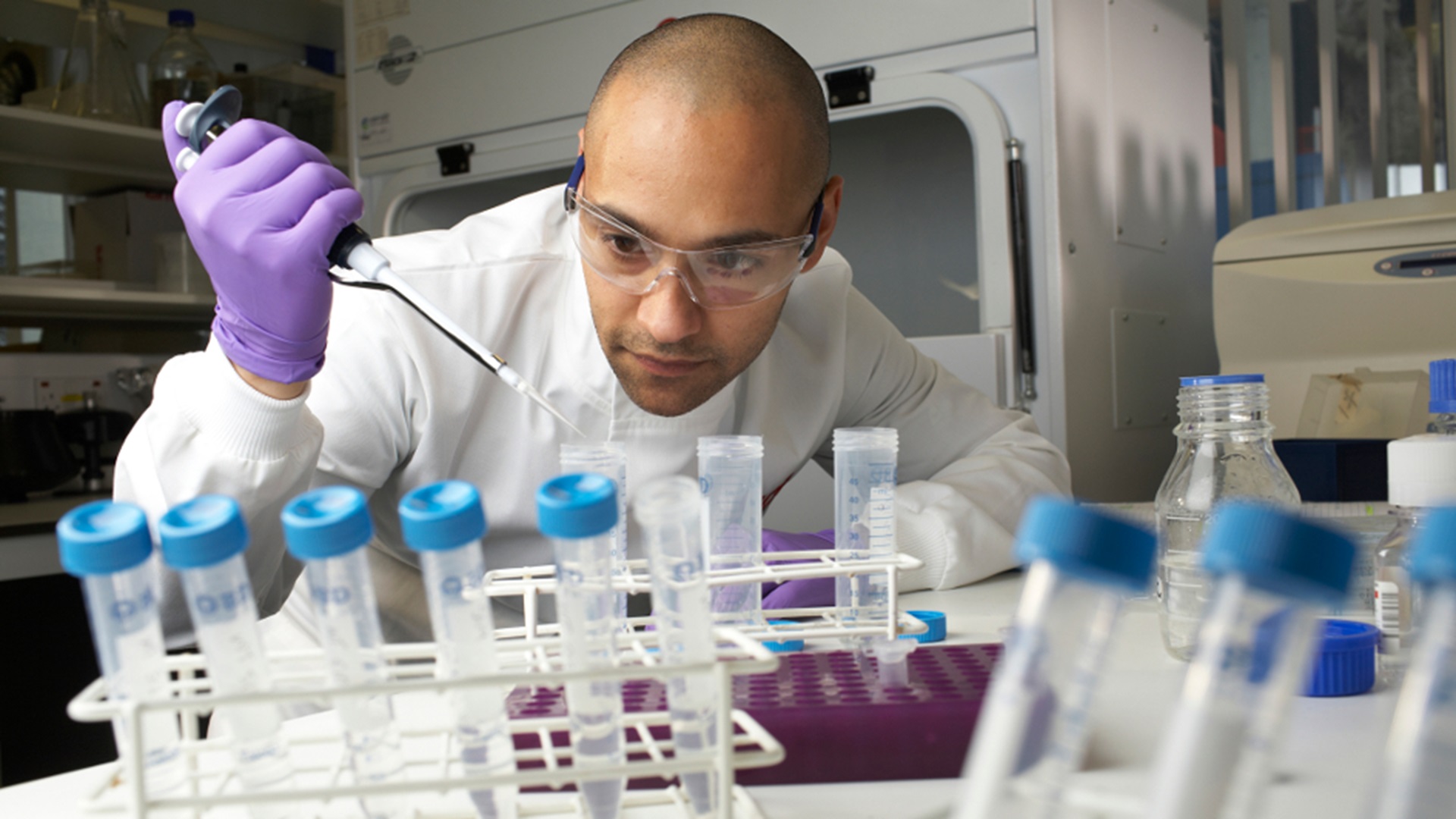
Opportunity: ARID1A and other BAF complex defects as biomarkers for ATRi resistance
Professor Chris Lord
Additional lead scientists/inventors:
ICR lead scientists/inventors:
Additional lead scientists/inventors:
Professor Chris Lord
Opportunity at a glance
The Institute of Cancer Research, London, is seeking a partner to continue the development of ARID1A and other BAF-complex genes as cancer biomarkers for predicting sensitivity to ATRi.
More about ARID1A and other BAF complex defects as biomarkers for ATRi resistance.
Genes encoding subunits of the SWI/SNF complex (also known as the BAF complex) including ARID1A are potent tumour suppressors, and these subunits are estimated to be mutated in nearly 20% of all human cancers. However, therapeutic approaches that target SWI/SNF defects are not yet available for clinical use.
An alternative approach has been to identify novel synthetic lethal interactions, and develop therapeutic approaches that exploit them. A team led by Professor Chris Lord at The Institute of Cancer Research (ICR) has discovered that defects in one or more BAF-complex genes, especially ARID1A, have the potential to be used as biomarkers for selecting patients whose tumours are likely to respond to treatment with inhibitors of ATR (Ataxia-Telangietasia Mutated (ATM) and Rad3-related protein kinase).
Recently, potent and specific ATRi have been discovered, including VE-821 and VX-970 (aka VE-822) (Vertex), which are currently in early-phase clinical trials as cancer treatments.
Biomarker Identification
Using RNAi chemosensitisation screens involving a potent selective ATRi (VE-821), the team initially identified ARID1A as a synthetic lethal partner of ATR inhibition in a p53 mutant, triple negative breast tumour cell line, HCC1143.
Inhibition of ATR in ARID1A-deficient tumour cells triggered premature mitotic entry, genomic instability and apoptosis.
Validation and Mechanistic Insight
The in vitro data have been confirmed in vivo. In a xenograft tumour model, a clinical ATRi (VX-970) was shown to significantly inhibit ARID1A-deficient tumours (ARID1- /-) as a single agent and impair their establishment and further growth.
The team also has substantial experimental evidence to support a mechanism driving the sensitivity of ARID1A-deficient cells to ATRi, having shown ARID1A deficiency results in:
- defective recruitment of the topoisomerase TOP2A to chromatin.
- cell cycle progression defects in both S and G2/M phases of the cell cycle.
They propose that these aberrations might render ARID1A-deficient cells sensitive to ATRi, as these inhibitors impair the ability of the cells to trigger adequate DNA damage responses, whilst accelerating mitotic entry.
Further work has shown that inhibition of other BAF tumour suppressor genes also causes ATRi sensitivity, suggesting this synthetic lethal approach could have wider clinical utility.
Combined with the pre-clinical evidence, this mechanistic rationale provides a strong basis for the assessment of cancers for defects in one or more BAF-complex genes, especially ARID1A, as biomarkers of ATRi response.
Intellectual property
The ICR has filed an international patent application (PCT/EP2017/050270) to cover the use of these biomarkers with ATRi in multiple tumour types, which has now entered the National Phase in multiple territories. Professor Lord’s team also has a wealth of know-how surrounding this biomarker, which will be made available to commercial partners.
Commercial Opportunity
The ICR has full commercialisation rights to this biomarker, and is seeking licensees and/or an industrial partner to collaborate on expanding the pre-clinical data and setting up biomarker-driven proof-of-concept clinical studies.
Key publications
Contact us
The ICR’s interactions with industry partners are managed by our Business and Innovation Office.
This UK-leading technology transfer hub oversees a large portfolio of partnership and licensing opportunities across a wide range of oncology research, from drug discovery and development to medical devices and artificial intelligence tools.
To find out more about this and other opportunities please contact:
Jonathan Beech
Business Development Manager